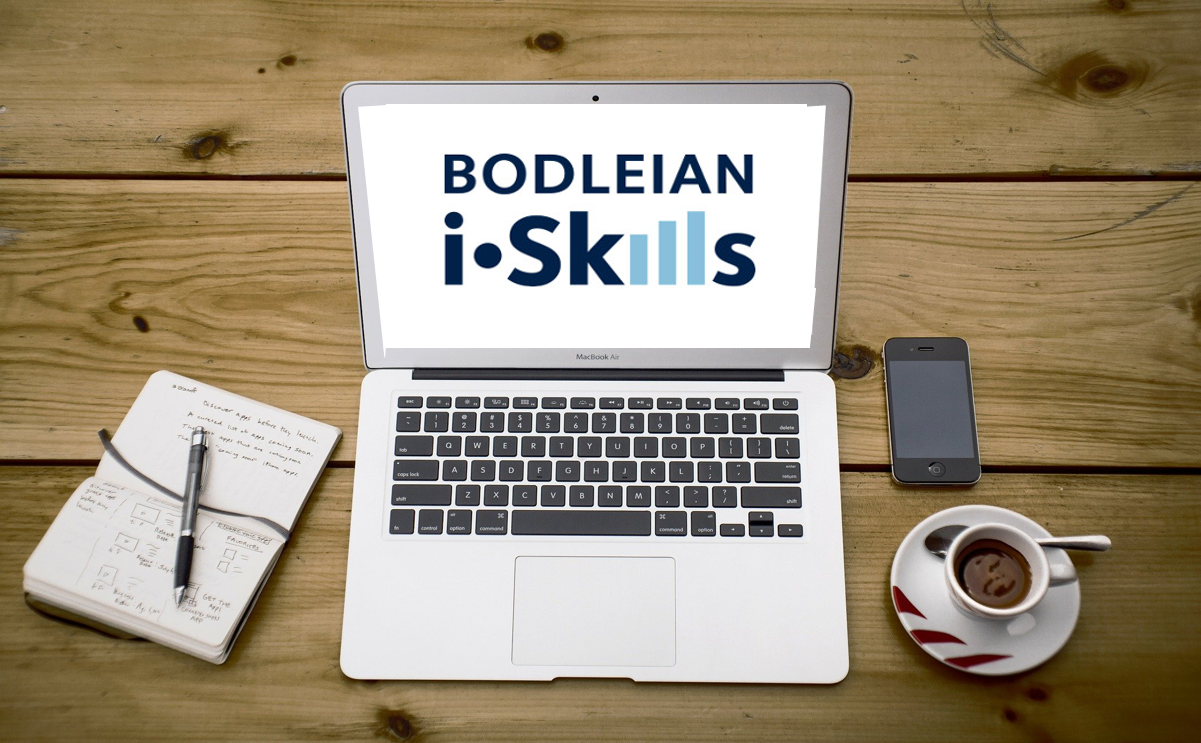Bodleian iSkills is a series of workshops designed for postgraduates and researchers, covering information discovery and searching for scholarly materials, keeping up to date with research, using reference management tools, research data management and open access publishing. For Michaelmas term, most of the workshops will continue to run online.
The workshops are FREE but online booking is essential. A list of the sessions taking place this term can be found on the iSkills Workshops webpage.
 Open Access: Your thesis, copyright & ORA (Tue 22 Feb 10:00-11:00)
Open Access: Your thesis, copyright & ORA (Tue 22 Feb 10:00-11:00)
Oxford DPhil students are required to deposit a copy of their thesis in the Oxford University Research Archive (ORA). This session will focus on what ORA is and how to deposit one’s thesis in ORA, and how to access help with this process. It will also cover the relevant rights and permissions required and other issues that DPhil students need to take into account when preparing their thesis for upload to ORA.
Who is this session for? All doctoral research students
iSkills: Getting started in Oxford Libraries (Tue 1 Feb 10:00-12:00; repeated Thu 17 Feb 10:00-12:00)
An introduction to getting started in Oxford Libraries, featuring live demonstrations and hands-on activities on how to use SOLO, the University’s resource discovery tool; how to search for a range of material and get hold of what you want to read; which Oxford Libraries to use for your needs and how to use our many services.
Literature searching and finding scholarly materials:
iSkills: Finding stuff – scholarly literature for your research (Mon 7 Feb 14:00-16:00; repeated Wed 16 Feb 10:00-12:00)
How to run effective literature searches for books, journal articles, conference materials, theses and dissertations from the University of Oxford and around the world.
iSkills: Preparing for your literature review in the Social Sciences (Tue 1 Mar 10:00-11:30)
Using your own research questions to build a successful search in the Social Sciences; working effectively with large result sets; sourcing highly cited papers relevant to your research; setting up alerts on your topic.
iSkills: UK Parliamentary and Government materials – an introduction (Thursdays in Hilary Term)
One-to-one sessions for finding and accessing historical and present-day UK parliamentary and government material, including print and digital sources, and any relevant archival materials.
Reference Management
We offer workshops on three reference management tools for Windows and Mac users, which help you build libraries of references, insert references into your Word document as in-text citations or footnotes and automatically generate bibliographies:
Referencing: Endnote (Tue 15 Feb 14:00-16:00)
Referencing: RefWorks (Fri 11 Feb 14:00-15:30; repeated Thu 24 Feb 10:00-11:30)
Referencing: Zotero (Mon 14 Feb 14:00-15:00; repeated Thu 3 Mar 10:00-11:00)
Open Access
Open Access Oxford: What’s happening? (Monthly sessions)
A briefing on open access publishing and Oxford’s position including guidance on how to comply with the Open Access requirements for the REF and mandates from key funding bodies whilst respecting your publisher’s rights and policies. Will cover Gold and Green routes and Article Processing Charges; University policy for the Open Access block grants including RCUK/UKRI and Wellcome Trust. The briefing is intended for current Oxford researchers and academics, research support staff and librarians.



















